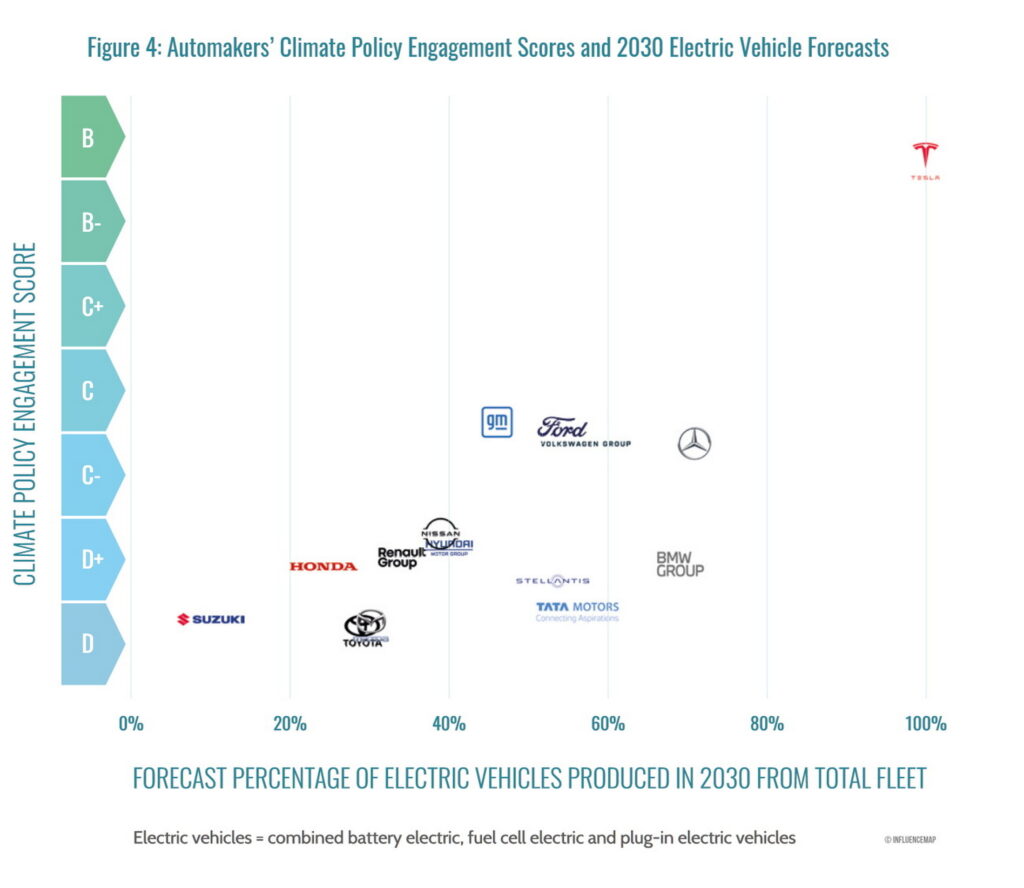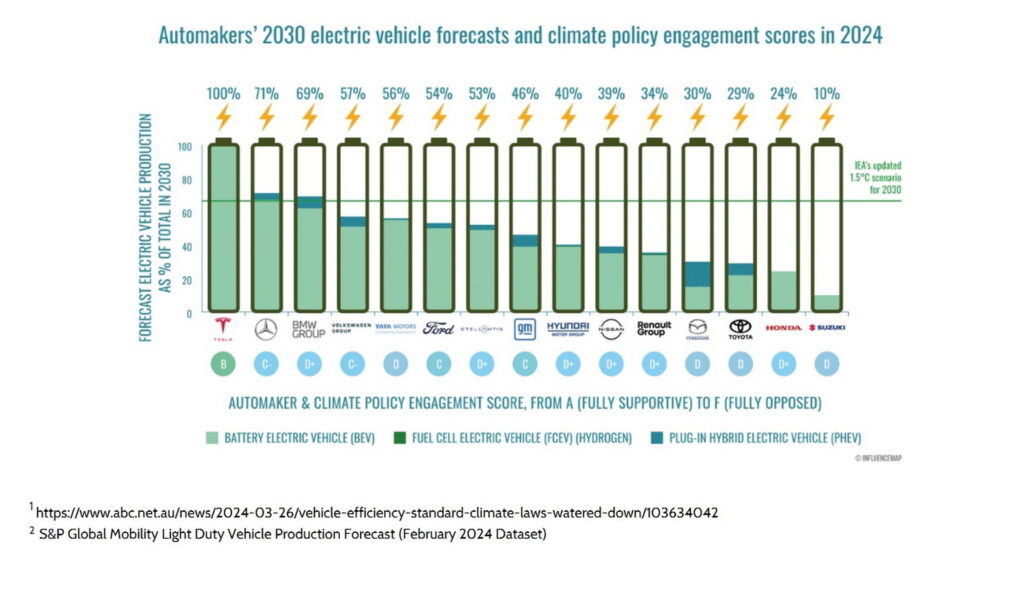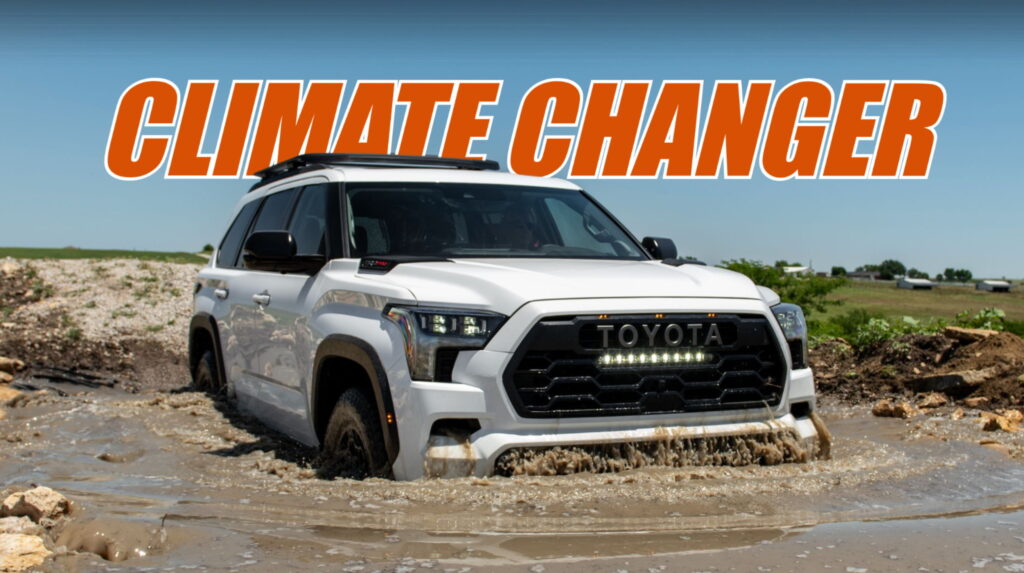- Toyota earned a D on its Climate Policy Engagement Score, and is joined by Suzuki and Mazda as one of the worst automakers in lobbying against science-based emissions policies.
- However, all automakers apart from Tesla are engaged in watering down pollution targets through industry advocacy groups.
- Just three automakers, Tesla, Mercedes, and BMW, are on track to make enough green vehicles to help the planet avoid the worst effects of climate change.
Japanese automakers are some of the most staunchly opposed to governmental climate policies , and no automaker is worse than Toyota, which once again has been identified as the car company fighting the hardest against laws that introduce greenhouse gas emissions caps, and mandate electric vehicles.
The lowest-scoring brands on InfluenceMaps’ new study of climate policy are Suzuki, Mazda, and Toyota, which have reportedly advocated to weaken climate policies in Australia, India, and the U.S., and promoted weaker climate rules that are misaligned with science-based caps.
Read: Producing Batteries In Europe Instead Of China Could Cut Emissions By 37 Percent
Toyota has openly opposed policies that espouse fully-electric vehicles as the only path forward for a healthy environment, claiming that the supply of available battery materials makes hybrids a better option. As a result, it has donated politicians who are climate change skeptics in the past, angering some investors.
“While electric vehicle sales continue to grow globally, negative advocacy from laggard automakers, particularly in Japan, to protect their investments in polluting combustion engine technologies, remains one of the biggest obstacles to science-based climate policy,” said Ben Youriev, the director of InfluenceMap.
The automaker earns a D on the Climate Policy Engagement Score, but it’s not alone. InfluenceMap found that many automakers launder their image by lobbying through industry groups such as the Alliance for Automotive Innovation in the U.S. and the Federal Chamber of Automotive Industries in the Australia, both of which succeeded in watering down recently announce climate policies in their respective countries.

As a result, no automaker scores better than a B, per InfluenceMap, and if you ignore Tesla, no brand scored better than a C. Meanwhile, according to the think tank, only three of the 15 companies analyzed are on track to produce enough green vehicles to avoid a climate catastrophe: Tesla, Mercedes, and BMW.
To meet the International Energy Agency’s updated 1.5 degree Celsius pathway and avoid the worst harms of climate change, 66 percent of vehicles will have to be fully electric, run on hydrogen fuel cells, or be plug-in hybrids by 2030, InfluenceMap finds. Based on current production trends, just 53 percent of vehicles globally will fit into one of those categories by that date.
“Automakers’ substandard electric vehicle plans, and negative advocacy strategies are driving the climate crisis,” said Youriev. “Without an immediate gear change from them and their industry associations to reform their climate policy engagement they will continue to weaken and delay climate rules globally, steering the world to the brink.”





